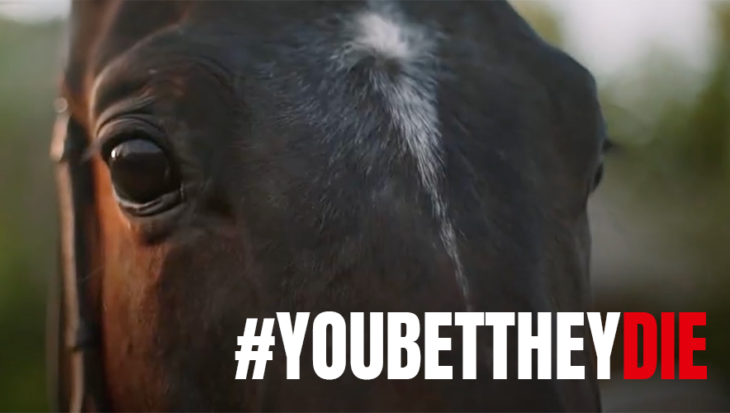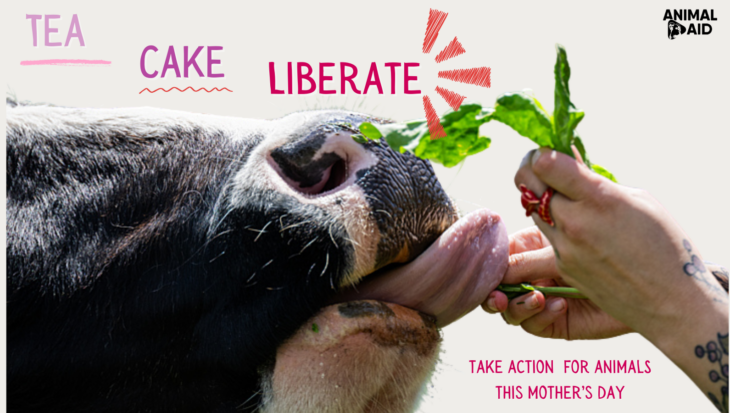Why The Grand National Needs to Be Banned
From the 3rd-5th April, The Grand National meeting will take place: a brutal event which has claimed the lives of 65 horses since 2000.
Posted 31 Mar 2025

Posted on the 31st October 2013
As millions of Britons continue to suffer economic hard times, Animal Aid demands an end to public subsidies for millionaire grouse shoot owners.
Shoot operators in England, Scotland and Wales – whose well-heeled clients can each pay more than £3,000 for a single day’s shooting – receive millions of pounds annually from the taxpayer1. The money is claimed for the maintenance and restoration of their shooting grounds.
Says Animal Aid Director Andrew Tyler
‘Animal suffering aside – and there is a great deal of it on Britain’s grouse moors – it is quite simply outrageous that, in an age of austerity in which we are supposedly “all in it together”, ordinary taxpayers are forced to subsidise millionaires at play. The Glorious Twelfth usually attracts benign, faintly amused media coverage. But grouse shooting is, in reality, a vicious indulgence that kills and maims large numbers of animals. It also damages a precious landscape. Only the very wealthiest can afford to shoot grouse, yet the very poorest are forced to help foot the bill.’
A major new report by Animal Aid, entitled Calling the Shots: the power and privilege of the grouse-shooting elite, gives the example of a shooting estate in the South Pennines owned by retail tycoon, Richard Bannister. Accused of environmentally damaging activities on his Walshaw Moor Estate by government agency Natural England (NE), Bannister faced 43 charges and a public inquiry. In March 2012, the action was unexpectedly dropped and, in a deal worked out between the two sides, the Walshaw Moor owner was awarded public subsidies worth £2.5m over 10 years, or £250,000 annually. That is about half the reported running costs of his shoot. The agreement allowed Bannister to keep and maintain all his ‘unconsented’ car parks, tracks and grouse butts – many of which were the subject of NE’s intended prosecution. Bannister also claimed, in 2012, Common Agricultural Policy subsidies of more than £45,000. In addition, he is receiving ‘staged payments’ – the details of which are being kept secret – because his original contract with NE was terminated and a new one signed.
Natural England and its Scottish and Welsh equivalents dispense the shoot-related subsidies on the basis that sound management of moorlands will result. Yet some of the agreements they sign with the shoot operators permit burning on environmentally precious deep peatlands that, in their undamaged state, remove harmful greenhouse gases from the atmosphere before storing them. The burning is carried out to promote the growth of heather on which the grouse feed2. Burning on these ‘blanket bogs’ means that climate-changing carbon is released rather than stored.
Calling the Shots calculates that the amount of carbon emitted each year as a result of burning on English grouse moors is the equivalent of that discharged annually by 88,000 average cars. The figure can probably be doubled when burning on Scottish grouse moors is taken into account. As well as extreme land management programmes, many grouse moor operators boost the number of birds for shooting by killing foxes, stoats, crows, weasels and other moorland wildlife judged to interfere with the profitability or smooth running of a shoot.
Calling the Shots describes how target animals are crushed in spring traps, snared with wire nooses or lured into cages and shot. In addition, protected birds of prey, including peregrine falcons and hen harriers, have been illegally killed by some gamekeepers, using poison, such as the banned pesticide carbofuran. Richard Benyon, who until October 7 was the Government minister for the natural environment, and who is himself the owner of a grouse moor, refused to make possession of carbofuran an offence.
Around 500,000 grouse are shot each year during the four-month shooting season, which starts on August 12.
For full background and interviews, contact Andrew Tyler on 01732 364546.
From the 3rd-5th April, The Grand National meeting will take place: a brutal event which has claimed the lives of 65 horses since 2000.
Posted 31 Mar 2025

Discover the stories of the mothers trapped inside different animal industries, and how you can help stand up for them this Mother’s Day
Posted 27 Mar 2025
